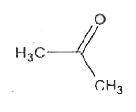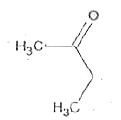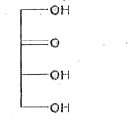Experimentally reducing a functional group cannot be done by which one of the following reagents?
Pd−C/H2
Pt−C/H2
Na/H2
Zn/H2O
To determine which reagent cannot experimentally reduce a functional group, we need to analyze the properties of various reducing agents commonly used in organic chemistry.
1. Understanding Reducing Agents:
- Reducing agents are substances that donate electrons or hydrogen to another compound, causing the reduction of that compound. In organic chemistry, common reducing agents include Lithium Aluminum Hydride (LiAlH4), Sodium Borohydride (NaBH4), and metals like Palladium (Pd) or Platinum (Pt) in the presence of hydrogen gas (H2).
2. Identifying Common Reducing Agents:
- Lithium Aluminum Hydride (LiAlH4): A strong reducing agent that can reduce carbonyl compounds (like aldehydes and ketones) to alcohols.
- Sodium Borohydride (NaBH4): A milder reducing agent than LiAlH4, also effective for reducing carbonyl compounds to alcohols.
- Palladium on Carbon (Pd/C) with H2: Used for hydrogenation reactions, converting alkenes and carbonyls to alkanes and alcohols, respectively.
- Sodium in the presence of water (Na/H2O): Can act as a reducing agent in certain reactions.
3. Identifying the Non-Reducing Agent:
- Zinc Hydride (ZnH2): Unlike the other reagents mentioned, ZnH2 does not effectively act as a reducing agent in organic reactions. It does not facilitate the reduction of functional groups like carbonyls.
4. Conclusion:
- Based on the properties and effectiveness of the reagents discussed, the reagent that cannot experimentally reduce a functional group is Zinc Hydride (ZnH2).
Final Answer:
Zinc Hydride (ZnH2) cannot experimentally reduce a functional group.
---
- Reducing agents are substances that donate electrons or hydrogen to another compound, causing the reduction of that compound. In organic chemistry, common reducing agents include Lithium Aluminum Hydride (LiAlH4), Sodium Borohydride (NaBH4), and metals like Palladium (Pd) or Platinum (Pt) in the presence of hydrogen gas (H2).
- Lithium Aluminum Hydride (LiAlH4): A strong reducing agent that can reduce carbonyl compounds (like aldehydes and ketones) to alcohols.
- Sodium Borohydride (NaBH4): A milder reducing agent than LiAlH4, also effective for reducing carbonyl compounds to alcohols.
- Palladium on Carbon (Pd/C) with H2: Used for hydrogenation reactions, converting alkenes and carbonyls to alkanes and alcohols, respectively.
- Sodium in the presence of water (Na/H2O): Can act as a reducing agent in certain reactions.
- Zinc Hydride (ZnH2): Unlike the other reagents mentioned, ZnH2 does not effectively act as a reducing agent in organic reactions. It does not facilitate the reduction of functional groups like carbonyls.
- Based on the properties and effectiveness of the reagents discussed, the reagent that cannot experimentally reduce a functional group is Zinc Hydride (ZnH2).
Zinc Hydride (ZnH2) cannot experimentally reduce a functional group.
Topper's Solved these Questions
- BOOK - JEE MAINS PREVIOUS YEARCHAPTER - JEE MAINS 2021EXERCISE - Chemistry Section B20videos
JEE MAINS 2021
- BOOK - JEE MAINS PREVIOUS YEARCHAPTER - JEE MAINS 2021EXERCISE - Chemistry (Section A)80videos
JEE MAINS 2021
- BOOK - JEE MAINS PREVIOUS YEARCHAPTER - JEE MAINS 2021EXERCISE - CHEMISTRY (SECTION-B)40videos
JEE MAINS 2021
- BOOK - JEE MAINS PREVIOUS YEARCHAPTER - JEE MAINS 2020EXERCISE - CHEMSITRY25videos
JEE MAINS 2020
- BOOK - JEE MAINS PREVIOUS YEARCHAPTER - JEE MAINS 2022EXERCISE - CHEMISTRY (SECTION-B)10videos
JEE MAINS 2022
Similar Questions
Knowledge Check
- Question 1 - Select One
An alkane cannot be chlorinated by using which of the following reagents?
ACl2/hvBHClCSO2Cl2Dt−Bu−O−Cl - Question 2 - Select One
From an alcohol molecule, the hydroxyl group cannot be replaced by using the following reagents :
AHBrBSOCl2CCl2DPCl5 - Question 3 - Select One
Which of the following reduces Tollen's reagent?
A B
B C
C D
D
Which of the following reduces tollen's reagent ?
View SolutionWhich of the following reduces Tollen's reagent ?
View SolutionWhich of the following can reduce Tollen's reagent?
View SolutionSulphonation of benzene is done by which reagent?
View SolutionWhich of the following will reduce Tollens' reagent?
View Solution

